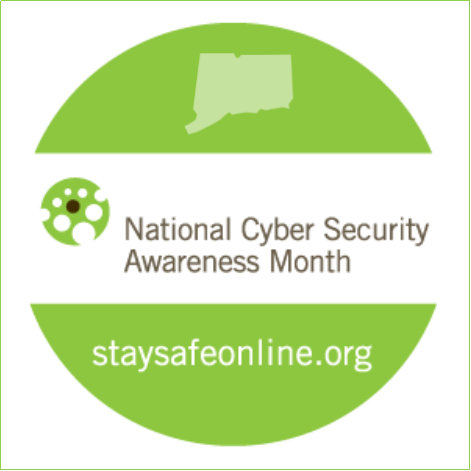Business Summit in Hartford to Focus on Trends in CyberSecurity, Technology, Collaboration
/The WorkSmart Hartford Summit, one of the largest complimentary Business and IT conferences in New England & New York, is all about staying ahead of the curve with business and technology. The Summit, to be held on May 10 at the Connecticut Convention Center, comes amidst heightened interest in cybersecurity and related IT issues.
“We’re proud to work with our trusted partners to share a variety of perspectives on evolving business, IT and security trends, such as cybersecurity, compliance and regulations, business intelligence, data and analytics, team collaboration, cloud technologies and more,” conference organizers emphasized.
“WorkSmart is such a unique event because it evolves each year based on our clients’ business needs,” said Christopher Luise, Executive Vice President of ADNET Technologies. “Each year, our partners and subject matter experts from the ADNET team come together to share their knowledge with the business community. It’s exciting for us to be part of these interactive discussions that change the way people do business.”
The day-long event is produced by ADNET Technologies, a technology consulting firm with offices in Farmington, CT and Albany, NY. The company’s mission is to “connect people, process and technology to help our clients build a better business.” Founded in 1991, ADNET “guides clients to better ways to connect, collaborate and compete in a global market.” This is the 13th year ADNET has produced WorkSmart Hartford.
 The Summit will feature nearly a dozen sessions and speakers, many from local businesses, highlighting best practices and latest developments in a range of technology arenas.
The Summit will feature nearly a dozen sessions and speakers, many from local businesses, highlighting best practices and latest developments in a range of technology arenas.
Morning keynote speakers Brian Foley, Deputy Chief of Investigations and Sergeant Johnmichael B. O'Hare, both of the Hartford Police Department, will speak about how the HPD uses cutting-edge technology combined with in-person police work to make the city safer. The "C4 Unit", or Capitol City Command Center, uses real-time web intelligence and social media monitoring to investigate leads, map criminal activity and proactively prevent crime.
Keynote Speaker Rob Thomas is a business development consultant, principal of Milford-based Rob Thomas CT and the creator of the Rob Thomas Method (RTM) of Networking, a step-by-step coaching process that helps professionals cultivate and grow business by building more effective relationships. He will discuss how to grow business by identifying and building a network of effective relationships.
Included among the day’s sessions:
- Instead of simply trying to protect from the inevitable breach, organizations must adjust their focus and be ready to respond by mitigating their risk and liability should a security incident occur. In one session, Eric Monda, IT Security Analyst, Offensive Security Certified Professional and Certified Ethical Hacker at ADNET Technologies, will share best practices all organizations should implement prior to being affected by a security breach.
- Every major security breach will create some level of chaos initially; how long this chaos lasts is the true measure of an organization’s preparedness and ability to respond and recover from a cyber incident. A presentation by Robert Coro of Marcum will focus on Incident Response Planning and Playbook development.
- There are many layers of protection that can be implemented and not one is a magic wand that casts an impenetrable bubble around your data. In this session, Anthony Conti and Joanna Mack of Continuum will outline the present threat landscape, discuss the anatomy of an attack, common misconceptions, and how to work with your technology partner to manage risk.
There will also be a session on HIPAA compliance, changes in cloud options and data centers, how to automate processes to improve efficiency, and the ‘Global Cyber Arms Race.”
Joining ADNET in supporting the WorkSmart Summit are presenting sponsor Marcum LLP, as well as Continuum, SonicWall, SphereGen, Rob Thomas CT, Reduxio, ACT Group, Connecticut Society of CPAs, One Connect, Intermedia, Omni Data, Great America Financial Services and the West Hartford Chamber of Commerce. More information and registration is available at https://worksmartsummit.com
2017 event photo by J. Fiereck Photography




 In May, Jepsen announced that Connecticut joined with 46 other states and the District of Columbia in an $18.5 million settlement with the Target Corporation to resolve the states' investigation into the retail company's 2013 data breach. The settlement represented the largest multistate data breach settlement achieved to date. That breach affected more than 41 million customer payment card accounts and contact information for more than 60 million customers. Connecticut will receive $1,012,936 from the settlement, which will be deposited in the state's General Fund.
In May, Jepsen announced that Connecticut joined with 46 other states and the District of Columbia in an $18.5 million settlement with the Target Corporation to resolve the states' investigation into the retail company's 2013 data breach. The settlement represented the largest multistate data breach settlement achieved to date. That breach affected more than 41 million customer payment card accounts and contact information for more than 60 million customers. Connecticut will receive $1,012,936 from the settlement, which will be deposited in the state's General Fund.




























